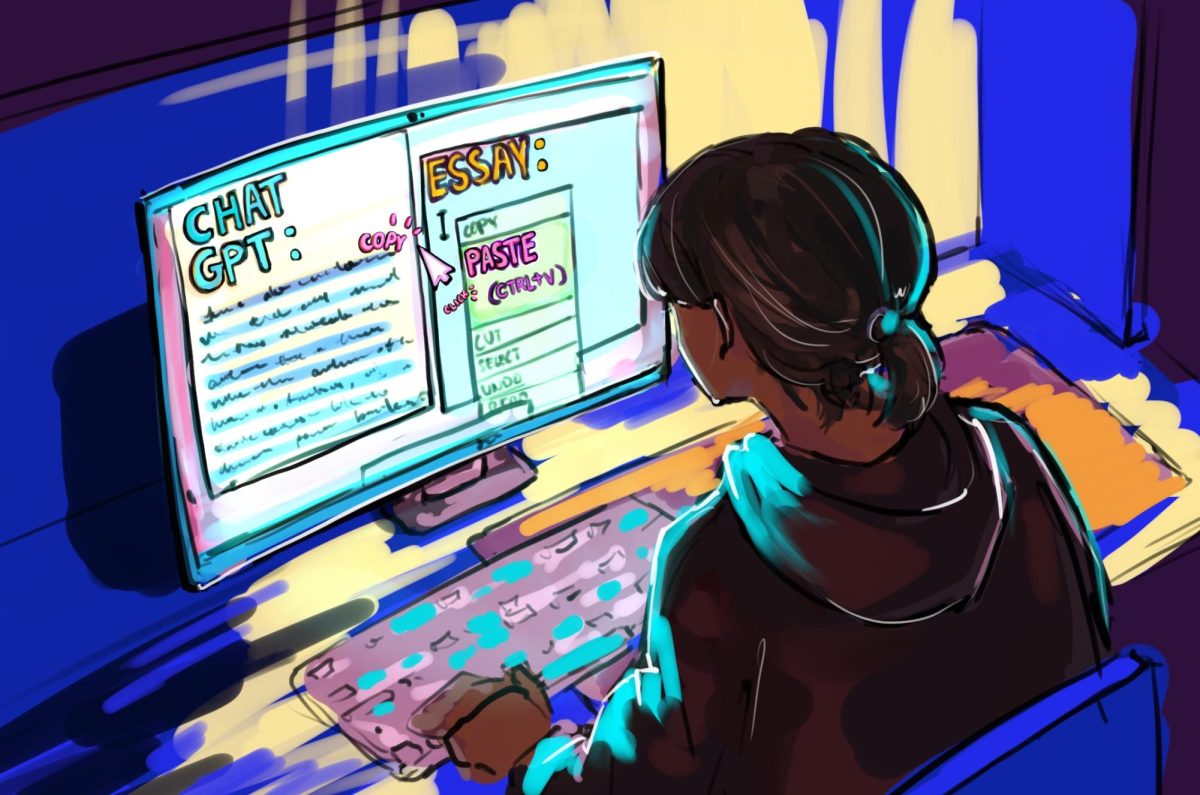There’s no denying that we have a problem. The advent of AI tools such as ChatGPT has led to an exponential uptick in academic dishonesty here on campus.
During marking period three, the number of disciplinary committee hearings far outnumbered those of the first two periods combined; of these hearings, seven involved allegations of students’ improper use of AI.
To get to the root of this problem, we have to acknowledge the truth: AI use is inevitable.
Our student body is constantly swamped with school and homework and co-curriculars; in a place where time is the most valued commodity, there will always be kids sacrificing the quality of their work for efficiency.
Right now, the administration is fighting a losing battle. Instead of trying to ban AI, the school—and its students—need to begin treating AI tools for what they are: tools.
Figuring out a way to use this software as a way to enhance learning, not replace it, is key to preserving the quality of our education.
Though there are many resources available on campus, teachers need to promote them in class to foster an environment where there is no stigma around asking for help.
There should also be, especially for the lower class students, more opportunities to practice and learn about study skills, test-taking skills, and writing skills so they do not feel a need to use AI.
Even though the burden is on the students to know—and not break— the rules, we need to approach this AI crisis realistically, not an idealistically. Coexisting with AI, not eliminating it, will allow us to reduce the frequency of cheating while also taking a step towards merging our educational futures with technological advancement.





